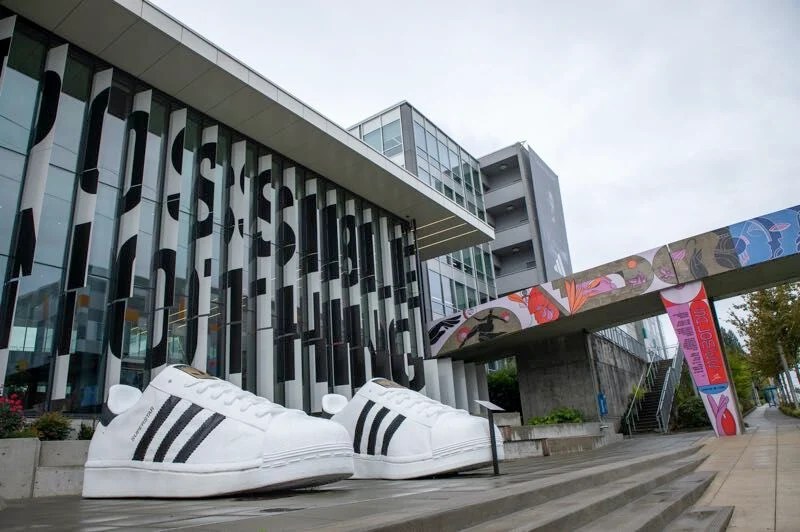Oregon shoe giants ask Trump to drop tariffs on imported shoes, ‘tens of thousands of jobs’ at stake
Published 2:20 pm Monday, May 5, 2025

- The Adidas campus in North Portland. (Jaime Valdez, Portland Tribune)
Some of Oregon’s largest companies, including Nike, Adidas and Columbia Sportswear, are asking Washington, D.C., for exemptions to President Donald Trump’s planned overseas tariffs, saying such a tax would bring about an “existential threat” to their business.
In a letter sent to Trump last week, the Footwear Distributors & Retailers of America — a trade organization of U.S. footwear companies — asked the Trump administration to remove footwear imports from Trump’s ongoing tariff plan.
”American footwear businesses and families face an existential threat from such substantial cost increases,” the group wrote in a letter sent to Trump on April 29. “Hundreds of businesses face the prospect of closure. Tens of thousands of jobs are at stake. Many orders have been placed on hold, and footwear inventory for U.S. consumers may soon run low.”
In April, Trump announced so-called “reciprocal tariffs” on nearly every country, saying that such taxes on imported goods would bring in billions of dollars. Many of those tariffs are on pause, though imports from China are currently slapped with a 145% tax.
Oregon is home to many of the world’s largest shoemakers. Footwear giants like Nike, Adidas, Skechers, Under Armour, Deckers and others are located in Oregon. All signed the letter, which was sent to Trump as well as U.S. Commerce Secretary Howard W. Lutnick, U.S. Trade Representative Jamieson Greer and U.S. Treasury Secretary Scott Bessent.
In short, the company said, tariffing imports on shoes won’t work. Consumers can’t afford it, manufacturing can’t move back to the U.S. and many businesses would shutter if such a tariff were imposed.
“If the current situation continues, American footwear workers and consumers will suffer,” the group said.
The U.S. has had a tariff on shoe manufacturing long before Trump took office. Some of the highest rates in the tariff code are placed on shoes, the group said, and tariffs on imported footwear have been on the books for the better part of a century.
Adding Trump’s tariffs onto the existing taxes, the group said, would mean American footwear companies could be charged up to 220% in tariffs.
That would be a death sentence to some shoe manufacturers, the group warned.
“This is an emergency that requires immediate action and attention,” the group wrote. “The American footwear industry does not have months to adjust business models and supply chains while absorbing this unprecedented and unforeseen tariff regime.”
And increasing tariffs won’t bring shoe manufacturing back to the U.S., the group said. Doing so takes years of careful planning, which the increased tariffs make difficult.
“The new tariffs in fact remove the business certainty that is needed to make these types of investments and erase almost all the necessary capital,” the group said. “There is also a reciprocal tariff on the machinery and materials needed to make footwear in the U.S.”
Trump has said he would consider exemptions for some companies. He granted exemptions to consumer electronics and car manufacturing imports.
Neither Trump nor the White House have said whether they are considering waiving the tariffs for imported footwear.





